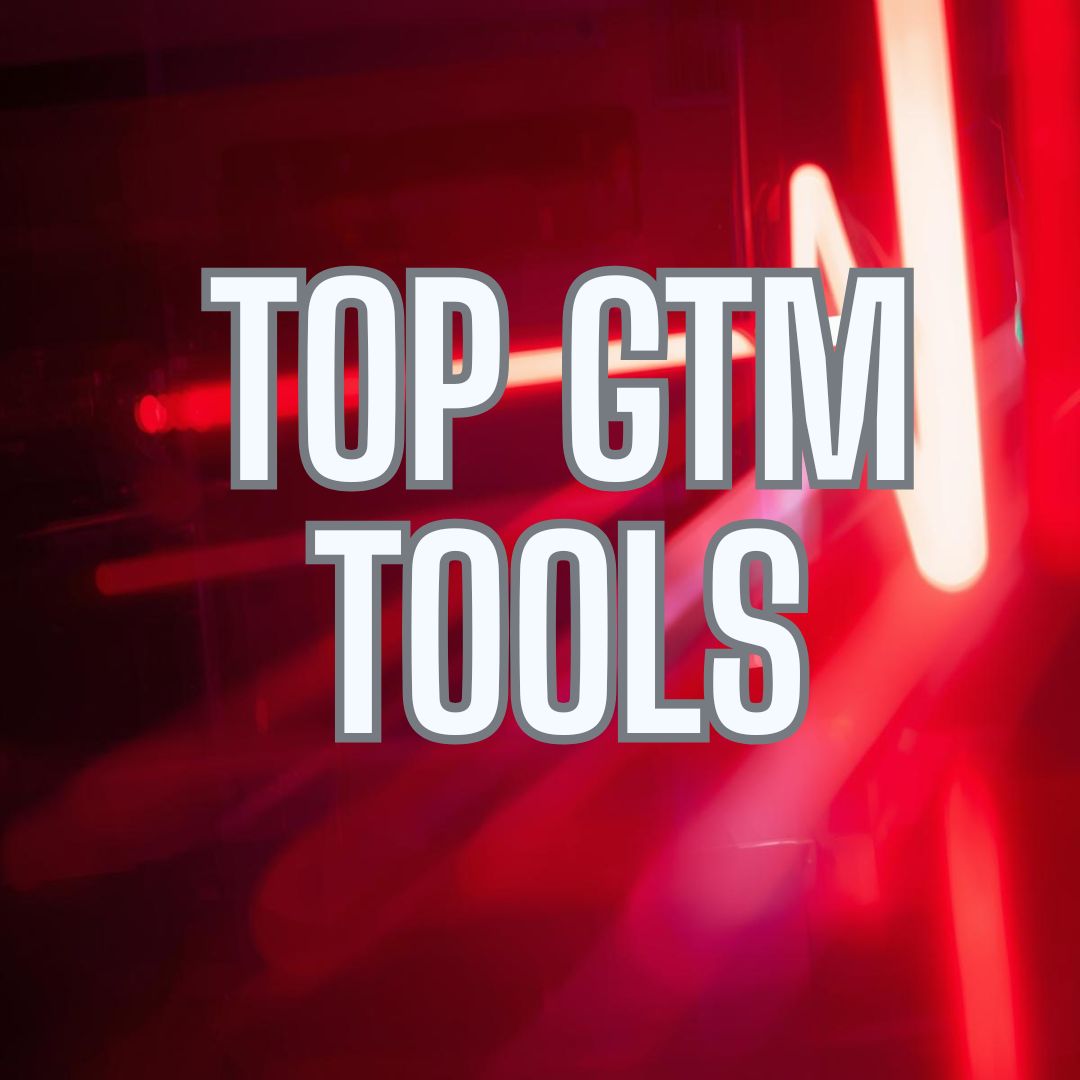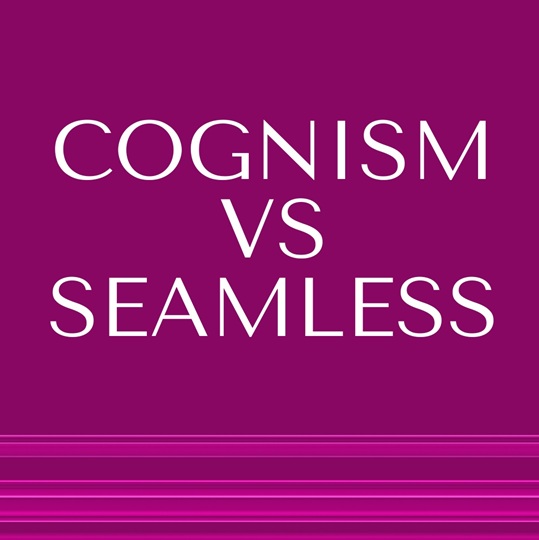Shopping around for the best sales intelligence tools or B2B sales lead search engine? Maybe you’ve narrowed down your choices to Seamless.AI and Lusha, or maybe you’re still doing your research on various software options out there.
Regardless of where you are in the process, you know one thing: One of the greatest pain points with sales intelligence tools is dealing with inaccurate, incomplete, or outdated data.
As Adam John Purvis, a B2B enterprise BDR, says:
“There’s nothing more frustrating than downloading a sales intelligence tool, exporting a list of prospects, beginning outreach and having a bunch of the emails bounce or numbers routed to HQ or customer service lines.”
If you’re in the B2B sales industry, there’s no doubt that you’ve experienced a similar roadblock before. The best way to mitigate this pain point is to find a sales intelligence tool that ensures accurate, complete, and up-to-date information in a timely manner.
Investing in a new tool for your sales tool stack is a decision we don’t take lightly, so we’re starting a series of comparative pieces to help you understand the nuances between all the different sales intelligence tools out there in comparison to ours here at Seamless.AI.
This article aims to highlight the key differences between Seamless.AI’s offerings and other top lead intelligence tools in the market. In this comparison, we’ll dive into the differences between Seamless.AI and Lusha.
📘 Related: B2B contact databases are good, but real-time contact data search engine tools are even better. Learn more in our Ultimate Guide to B2B Contact Databases
Here’s what you’ll find in this comparative analysis:
- A high-level comparison chart of Seamless.AI vs Lusha, with G2 ratings
- Each tool’s core products and features, plus the key differentiating features
- Pricing structure comparison between both tools
- Testimonials and reviews from real Seamless.AI and Lusha users
- A decision-tree between Lusha and Seamless.AI
Before we jump into the nitty gritty of each tool, let’s start with a high-level comparison of the tools that we’re dissecting: Seamless.AI and Lusha.
🎯 Comparing Seamless.AI vs Lusha at a glance…

“Lusha is like that reliable friend who's always on point. It's user-friendly to the core and spot-on with contact details. But it's kind of like having a bike when you sometimes need a car–great, but with its limits, especially with integrations. Seamless.AI, on the other hand, is more like a Swiss Army knife. It's packed with features and integrates with systems like they were made for each other. Sure, it took some time to really get it, kind of like learning to drive stick, but once you get it, you really go places.”
- Nathan Jacobs, Senior Researcher at The Money Mongers
While that testimonial of using Lusha vs Seamless.AI is from a single user, it seems to sum up the general consensus of users who have experience using both of the sales intelligence tools mentioned.
But don’t worry. This comparative analysis piece between Seamless.AI and Lusha isn’t all about how one tool is better than the other, because when it comes to finding the right sales intelligence tool, it’s important to consider your unique needs, priorities, budget, and use case.
Here’s a quick snapshot of the two contact data software tools in question.
Seamless.AI
Seamless.AI is a real-time B2B contact data search engine and a centralized lead generation platform with a full suite of products for teams to:
- Identify their full TAM (total addressable market)
- Source valuable contact and company firmographic information
- Integrate easily into third party platforms
- Maintain a healthy and full sales pipeline
With a G2 rating of 4.2, Seamless is considered a “momentum leader” in the G2 Grid for Sales Intelligence. This means that Seamless.AI is on a high growth trajectory based on user satisfaction scores, employee growth, and digital presence.
✍️ Related: Learn more about Seamless.AI on G2, Capterra, and TrustRadius. Explore real reviews from real users, or share your experience using Seamless.AI with an honest review.
Lusha
Lusha is another B2B contact database that was created with the vision to create a large crowdsourced data community for salespeople to identify, engage, and close prospects. This prospecting platform is also considered a leader in the sales intelligence tools space, with a G2 rating of 4.3.
Both Seamless.AI and Lusha offer tools and features to find the right prospects at scale.
So what’s the difference between the two? Let’s get into the details below.
🛠️ Core products and features
Here are some of the advanced features that come with Seamless/AI:
- Live search engine to get lead contact data or firmographic data in real-time
- Easy-to-use, embedded Seamless.AI Chrome extension makes it easy for lead gen on your favorite B2B social platforms (usually LinkedIn)
- Data automation and enrichment through AI
- International data privacy and data compliance
- Expansive set of robust integrations to get data into your preferred CRM or outreach platform (Salesforce, Hubspot, Outreach, LinkedIn Sales Navigator, Salesloft, and more)
- Pitch intelligence and an AI writer tool to write sales and marketing messages in seconds
- Buyer intent data feature to choose from buyer intent signals
- Automated list building with AI
- Job changes tracker to stay on top of key accounts and maintain an active pipeline
📘 Related: Explore the full list of Seamless.AI’s integrations, or dive into our breakdown of Seamless.AI key features
Lusha offers everything that Seamless.AI offers, but also a sales workflow automation, a public API, and channel partners.
Lusha’s features:
- Traditional B2B contact database with lead data
- Lightweight lead search engine capabilities
- Lead search chrome extension
- Sales and workflow automation
- Data automation
- International data and data compliance
- Public API and data partnerships with licensed third parties
- A system of channel partners/partner ecosystem
- Lightweight version of an AI content writer
- Buyer intent data
- Integrations with Salesforce, Hubspot, Outreach, Salesloft, Bullhorn, Pipedrive, Zoho, Gmail, Outlook, Zapier, Chrome extension with LinkedIn
Here’s what Muhammad Tariq, Business Leader and Digital Marketing Head of Flexipcb, has to say about the difference of features between both Lusha and Seamless.AI after extensively using both:
“Lusha's strength in providing direct phone numbers and emails enhanced our communication channels. Conversely,Seamless. AI's strength lies in its vast database and advanced filtering options, enabling precise targeting based on specific criteria. While Lusha excels in immediate contact information, Seamless. AI stands out for its broader dataset and nuanced search functionalities.”
According to Emily Clark, digital marketing and business expert at DigiAnalytics,
“[With Lusha] I'm starting to crave more advanced features like lead scoring or campaign automation. Seamless.AI caught my eye with its powerful features and integrations. It offers everything Lusha does, plus a whole lot more, like lead scoring and social media insights, which would be amazing for taking my outreach to the next level.”
Now, comparing features between the two sales intelligence platforms isn’t just a matter of who offers what. It’s more about the quality of features that are being offered. Lusha may offer a few more features that might pique your interest, but Seamless.AI provides far more powerful and highly specialized features in some categories, such as a strong lead search chrome extension and more powerful integration options.
👥 Seamless.AI’s data vs Lusha’s
When it comes to comparing sales intelligence tools, the quality of data is arguably one of the most important factors to consider.
But it all boils down to where each tool sources their data from.
Data Sources
We covered this in another article: “Is Seamless.AI legit?”, but in short, Seamless.AI uses artificial intelligence and powerful predictive analytics to crawl through the web and find contact information based on a person’s digital footprint. It’s basically like having a search engine do all the research for you in a matter of seconds rather than manually looking up every individual prospect’s LinkedIn profile, company website, social media accounts by yourself.
Lusha, according to their website, also uses AI and machine learning to collect data from public records, publicly available information, and business directories. Lusha relies heavily on public databases for their data, with an additional community of voluntary contributors to validate existing data and submit new data.
To the naked eye, having access to this information seems like enough for the task at hand. But if you’re looking for the most up-to-date, accurate, and complete information, most traditional contact databases have either inconsistent or non-existent information on SMB’s and startups.
Seamless, on the other hand, provides more accurate and complete information sourced from an aggregation of data based on integrations with well-known sales and CRM platforms, plus AI and machine learning to research and verify data in real-time.
If you want to maximize your potential of targeting your full TAM and having the right information on SMBs and startup companies that are not as easily accessible, simply relying on the same information that every other contact database provides won’t set you apart from your competitors trying to reach out to similar market segments.
Data coverage and reach
As a sales professional, reaching out to your full and complete TAM is crucial to your success. When it comes to judging the completeness of data from sales intelligence tools, being able to access contact data or firmographics on businesses of any size, whether enterprise-level or small and medium businesses is huge.
Here’s a quick look at how Seamless.AI compares to Lusha in terms of data reach and coverage:
Seamless.AI’s data reach and coverage:
- 2.3 billion contact and company records to date
- 157 million+ companies
Lusha’s data reach and coverage:
- 45 million contacts in North America
- 50 million enterprise business profiles
- 44 million SMB business profiles
- 21 million GDPR-compliant European contacts
🔑 One of the main differences between the scope of Seamless.AI and Lusha’s data is the coverage and depth of data on small to medium businesses.
It’s not difficult to find enterprise data. This type of data is usually publicly available and easy to access. Data on small to medium businesses, on the other hand, isn’t as easy to find.
That’s where Seamless.AI outshines Lusha. Like most other contact database providers, Lusha doesn’t offer as much coverage on SMB data as Seamless.AI does. Rather than prioritizing large enterprise companies in a specific location and industry that are most widely coveted (like Lusha), Seamless.AI’s algorithms don’t discriminate against what size or kind of company you need information on.
Here’s what Kamil Bajolek, Brand Director at PRM.com, has to say about Lusha’s data coverage in comparison to Seamless.AI’s data coverage:
“Lusha has been particularly useful when it comes to quickly finding direct contact details. Still, I’ve noticed that Lusha’s database is sometimes limited in scope compared to Seamless.AI.”
Lusha’s website says they have about 44 million SMB profiles. Although we don’t have in-depth data on Lusha’s main user base, many users do point out that Lusha does not provide as extensive SMB data coverage or comprehensive firmographic data (company details) as Seamless.AI does.
In fact, Seamless.AI is quite popular with SMBs, with those company profiles making up a good chunk of our main user base.
Aside from SMBs and startup data, the one market segment that Lusha does well in is providing contact data for international companies. A common point that Lusha users mention is that they have a strong phone accuracy overseas.
So when it comes to choosing the type of sales intelligence tool to help you find lead data on smaller, newer, and lesser-known companies or contacts, Seamless.AI is your best solution. If you’re not prioritizing outreach to SMBs or startups (which you should!) and you’re looking for a sales intelligence tool with a stronger international presence, Lusha’s data might suffice for your needs.
Refresh rate speed of updating data
Time is money, especially for sales teams. And while both Seamless.AI and Lusha generally cut down your prospecting and lead generation time (by a lot!), let’s focus on the time it takes to update and get fresh data.
As we mentioned before, Seamless.AI is a live, real-time search engine for all your business contacts. Lusha, on the other hand, aligns more closely with traditional B2B contact databases that rely on publicly available data.
🔑 The key difference here is that publicly available data, or getting data from licensed business partners, doesn’t get verified as quickly as a “search engine”-like tool that instantaneously crawls multiple sources of data.
While it may seem like data from your typical contact database would refresh automatically, their data may take up to a few months to refresh in their systems.
🗣️ According to Salesforce, “Traditional databases go bad by over 70% every year.”
That’s basically saying that traditional databases can limit your access to fresh new data by over 70% every year. At Seamless.AI, we ditch the traditional database model to give your team access to freshly researched contacts in real-time so you’re not subject to your typical outdated contact database.
Accuracy, completeness, and coverage of lead contact data
If you’re looking for real-time updates for your contacts, you don’t have time to worry about data decay or deterioration.
There are a few ways that Seamless.AI keeps new and existing prospect or contact information up-to-date, accurate, and complete:
- Data enrichment with a CRM, ATS, or CSV
- Tracking prospect job changes
- Data set confidence scoring and AI
Here’s how Lusha ensures the accuracy and completeness of their data:
- Crowdsourced data verification
- Data enrichment through API or CRM
- Job change alerts
With Seamless.AI, you can enrich your data whether you’re a sales rep looking for fresh B2B contact data or a recruiter looking for fresh candidate data. With Lusha, you might be more limited to B2B sales prospecting purposes when it comes to getting fresh new data with their API or CRM enrichment.
While both tools track job changes, the key differentiator is that most traditional contact databases like Lusha have a data reverification rate of about 90 days on average. With Seamless.AI, you’re getting real-time updates (not just every 90 days) on prospect job changes by simply uploading a list of contacts and receiving an export of anyone who’s recently changed jobs.
📘 Related: Learn more about how Seamless.AI uses Total AI to set a confidence score for each and every data point.
💸 Seamless.AI Pricing vs Lusha pricing
Pricing structure is a key differentiator to keep in mind while shopping around for sales intelligence tools. After all, it’s important to know whether you’re getting the most bang for your buck.
In the B2B world, the three main concerns about pricing for tools like Lusha and Seamless.AI are:
- Flexibility of pricing
- Transparency of costs
- Costs associated with high usage or overages
While the Seamless.AI website doesn’t explicitly show pricing for different tiers, the most important differences between the pricing structure of Seamless.AI and Lusha is twofold: Lusha’s pricing structure provides both yearly and monthly contract options, but Seamless.AI provides more flexibility and transparency for high usage users.
At first glance, avoiding software tool lock-in with less committed pricing plans seems attractive and puts less pressure on users to commit, Lusha’s paid plans do come with a few drawbacks.

According to Dhimant Vyas, Head of Sales and Marketing at TextDrip,
“One drawback with Lusha is its pricing structure. While the service is undeniably valuable, the costs associated with high usage can be a concern. This aspect requires careful consideration and budget planning to ensure optimal utilization without exceeding financial constraints.”
Other users like Melissa Terry, Digital Marketing Manager at VEM Tooling had a similar concern about Lusha’s pricing:
“Lusha’s pricing model feels less flexible and more cumbersome compared to competitors. Seamless.AI, in particular, offers a more transparent pricing structure, making it easier to manage budgets without unexpected overages.”
While Lusha provides clear price points for their paid plans, there seems to be a common concern among many users that the pricing structure based on credits for each contact retrieved, can lead to unpredictable costs.
When you’re scaling your prospecting and outreach efforts, worrying about hidden cost overages is the last thing you want to worry about. Seamless.AI’s credit model is not limited by a small amount of direct dials and exports, which means there’s no cap on exports and direct dials compared to credits. This makes it easier for Seamless.AI users to plan and budget for high usage without being hit with unexpected overage costs.
For teams that aim to scale their outreach and prospecting, high usage and credit pricing structure is a key point to consider.
Common Lusha complaints and drawbacks
While Lusha is commonly known for their user-friendly interface that many sales professionals find easy to get started with, user interface is not the only factor that most people look at to decide whether or not a sales intelligence tool is worth their investment.
Lusha has many advantages and defining features that make it stand out against many other sales intelligence tools. But when it comes to shopping for a new software to add to your tool stack, you want to know what potential roadblocks or issues you can run into–maybe even more so than what the benefits are.
After combing through various reviews from real Lusha users on trusted software review sites like G2, Capterra, and testimonials submitted to us by B2B sales professionals, here are some of the most common complaints users have said about Lusha:
- Limited integration options compared to other top sales intelligence tools
- Heavily relies on publicly available data
- Pricing structure can be a concern, especially with high usage
- Not ideal for more in-depth information like social media profiles or customer buying trends
- Lacks advanced features like lead scoring or campaign automations
- Lack of pipeline management or customization options
- Lacks SMB data and coverage compared to a tool like Seamless.AI
In a nutshell…
When you really get to the core of each tool’s strengths and weaknesses, the right sales intelligence tool for you boils down to what features and strengths you want to prioritize for your needs.
Still don’t know which sales intelligence tool best suits your interests? Here’s a simple decision-tree that summarizes the differences between Seamless.AI and Lusha to keep in mind while shopping around for the best sales intelligence tool in the industry.
Seamles.AI vs Lusha decision tree

If you’re looking for…
- An accurate and powerful real-time lead search engine
- A powerful integration with your CRM system to manage and track leads easily
- Robust pipeline management and better lead generation efficiency
- A more comprehensive database of real-time lead contact data with a built-in search engine
- In-depth prospecting features with AI-driven prospect targeting and advanced filtering
- Flexible and transparent pricing structure that caters to high usage, high-caliber prospecting needs, and minimal overages
- Advanced features, like lead scoring and social media insights
- Faster data refresh rates for real-time contact data and job changes
- More extensive coverage of SMB data
…Seamless.AI might be the right B2B contact data search engine for your needs.
However, if you only need…
- An easy-to-start, user-friendly contact database with enough lead contact data for smaller sales needs
- A budget-friendly tool for sales teams with smaller budgets or solopreneurs
- A sales intelligence tool that sales newcomers can easily use
- Less coverage of SMB data
…Lusha is another lead contact database to consider.
TLDR; you can sum up the comparison of both sales intelligence tools according to the words of Andrei Vasilescu, The Co-Founder and CEO of DontPayFull:


“First, we have Lusha. It's compared to a friendly neighborhood grocer–easy to use and great for basic stuff like finding email addresses and contact information. However, it's not so great for more in-depth info, like social media profiles or understanding customer buying trends."
"Next up, Seamless.AI. This one's described as a Michelin-starred intel tool– it's sophisticated and powerful, but also more expensive. It offers AI-powered insights and real-time updates, but it's harder to learn and could be pricey for smaller budgets.”
Lusha is a good option for teams looking for an easy-to-start sales intelligence tool and don’t need as much in-depth, comprehensive, or advanced contact data. Seamless.AI is a great option for teams who want more robust and comprehensive data coverage with in-depth features. While Seamless.AI might be worth the extra money for advanced sales info and larger teams, this tool may not be suitable for teams that don’t need in-depth contact data and only need lightweight usage of getting lead contact data.
Both Lusha and Seamless.AI offer unique strengths that cater to specific needs of B2B professionals or teams. The choice is yours to make, but keep in mind that any sales intelligence tool you add to your tool stack should help you scale easily, rather than breaking or limiting your potential to close more deals.
Want to learn more about what Seamless.AI has to offer? Get direct answers to your specific questions about Seamless.AI from a real person on our team here.
📕 Or if you’re simply browsing through and want to do some of your own research, here are a few resources you can check out:
- How to identify buyers in-market for your product with Buyer Intent Data by Seamless.AI
- How to Use Hubspot with Seamless.AI
- How to Use Salesforce with Seamless.AI
- Best Sales Intelligence Tools on the Market
Other Seamless Comparisons



















